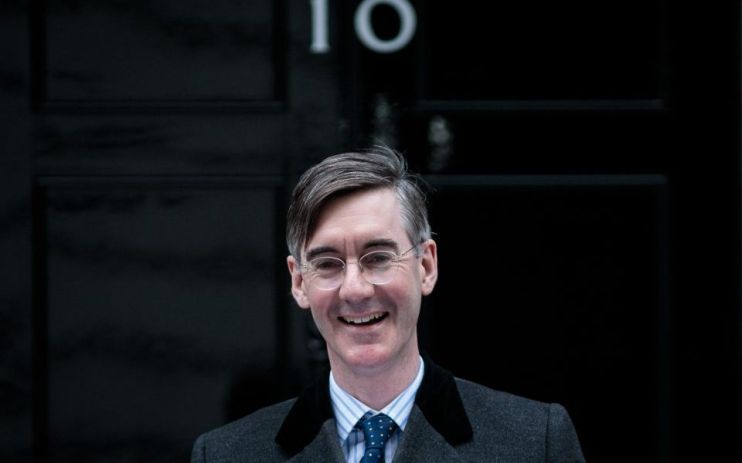Rees-Mogg: Bank’s tame rate hike could have sparked pension crisis

Jacob Rees-Mogg looked to shift the blame of the pensions crisis onto the Bank of England this morning as he claimed it could have been sparked by Threadneedle Street’s failure to hike interest rates more aggressively.
Speaking on the BBC’s Today Programme, the business secretary said that to suggest the crisis was caused by the government’s tax-cutting mini-budget was in breach of the broadcaster’s impartiality rules.
Kwasi Kwarteng’s so-called mini-budget has been widely blamed for disrupting the UK gilt market and sending yields soaring, which sparked a liquidity crisis in some UK pension funds that use debt-driven liability driven investment strategies (LDI).
The volatility forced the Bank to step in with emergency bond-buying programme the following week, with further interventions rolled out this week in a bid to steady the market.
But Mogg claimed the move could have been caused by a more timid interest rate hike the day prior to the budget.
“What has caused the effect in pension funds because of some quite high risk but low probability investment strategies is not necessarily the mini budget,” he claimed.
“It could just as easily be the fact that the day before the Bank of England did not raise interest rates as much as the Federal Reserve did.”
He added that “jumping to conclusions about causality” did not meet the BBC’s impartiality standards.
Mogg’s comments come after Bank governor Andrew Bailey warned the measures would come to an end on Friday, saying pension funds had three days to boost their liquidity positions.
Pensions experts have been calling for a softer end to the measures and warned of the impact of a sudden drop off in the Bank’s bond-buying.